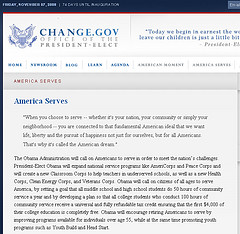Facebook has become just about as integrated into American culture as apple pie. We all know apple pie tastes amazing–but when taken to the extreme and eaten on a consistent basis, it’s not exactly the healthiest food. This applies to Facebook as well. Facebook can offer a number of benefits–but it also has some potential drawbacks. And despite our shared love for Facebook, it’s important to be aware of its possible drawbacks. This post looks at a number of different research studies published in the past year that include some interesting findings.
Does Facebook help us feel more connected—or alone?
A recent set of studies found a paradox in Facebook psychology. The studies looked to answer the question: Does using Facebook help us feel more connected, or not? The results may surprise you.
The research was actually conducted through four different yet connected studies. The first study found that frequent Facebook usage relates to both increased connection–as well as increased feelings of disconnection. The second study found that disconnection motivates greater Facebook usage as a coping strategy as greater usage leads to greater connection (yes, this seems odd given the first study’s results).
The third study deprived participants of Facebook use for 48 hours. While feelings of connection decreased, the feeling of disconnection was unaffected. However, those who felt more disconnected actually engaged in increased Facebook use during a second 48-hour period.
In the fourth study, participants set a goal to reduce their use of Facebook. In setting this goal and working to achieve it, greater disconnection was felt. Those that had this feeling performed worse in achieving their goal.
Mirror, Mirror on the Wall: Who has the best self esteem of them all?
Another study conducted by researchers at Cornell found that Facebook usage actually leads to increased self-esteem. “Facebook can show a positive version of ourselves,” associate professor Jeffrey Hancock told CNN. “We’re not saying that it’s a deceptive version of self, but it’s a positive one.”
Hancock is the co-author of a report titled, “Mirror, Mirror On My Facebook Wall: Effects of Exposure to Facebook on Self-Esteem” that was published in the journal Cyberpsychology, Behavior and Social Networking. The study put 63 students in a university computer lab. Some computers were turned off with a mirror in front of it—while others were turned on showing the student’s Facebook page.
For three minutes, participants either stared at themselves in a mirror or reviewed their Facebook profile. When time was up, students were given a questionnaire to measure their self-esteem. The students who had been reviewing their Facebook profile gave more positive feedback than the others. The participants that edited their Facebook profile actually gave themselves the highest marks.
“For many people, there’s an automatic assumption that the internet is bad,” Hancock is quoted saying in an article published by CNN. “This is one of the first studies to show that there’s a psychological benefit of Facebook.”
Is the grass really greener?
Another study supports this finding as it found that those who like themselves tend to share more of themselves through social networks. And, that those more active on social networks tend to think more highly of themselves.
At the same time, another set of research published this past January, found that Facebook reinforces the idea that “the grass is always greener” and that everyone else is happier and better off than you. This research “suggests that people may think they are more alone in their emotional difficulties than they really are.” Not exactly a recipe for great self-esteem…
What does this mean for us?
Given the mixed results already discussed, we know research has also found that Facebook and social networking can help increase connectedness among certain communities–especially when it comes to our health. This post is in no way meant to be a down-with-Facebook rant. More so, here’s the take-away for us: Have a self-awareness of the good and the bad impact Facebook may have on you, to your community and in your work. Knowing and understanding the positive impact technology can have as well as its potentially harmful effects is a part of digital literacy. For those working in public Health, it’s an awareness we need to consider.
BONUS: BJ Fogg’s Psychology of Facebook class is on my need-to-do list.
Do you know of additional research that looks into the psychology of Facebook? Please share!
flickr credit: Jason A. Samfield




